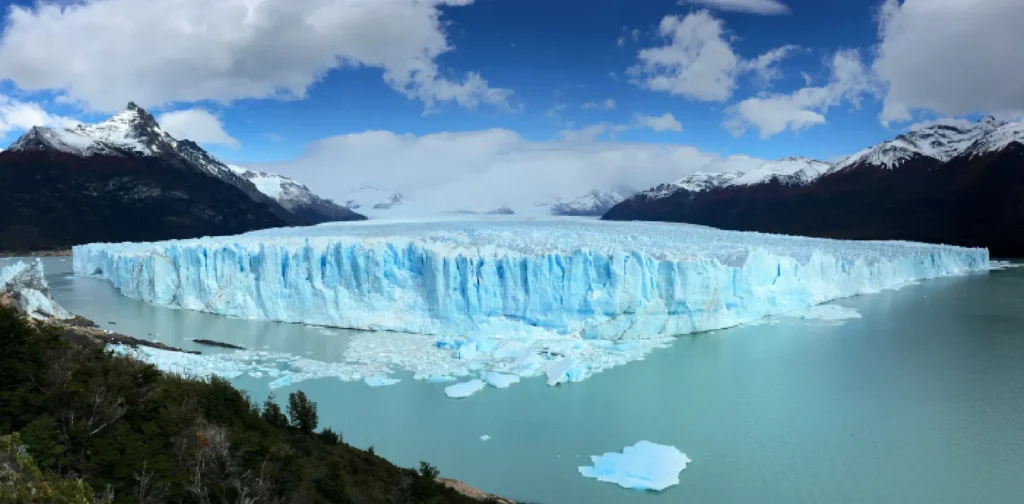The Widespread Consequences of Melting Glaciers

Photo: Rachel Jarboe on Unsplash.
The world is boiling, and ice is melting. One of the most dire consequences of rising Earth temperature is melting glaciers, which have been occurring at an alarming speed.
Melting Glaciers
Glaciers are large bodies of slowly moving ice formed by fallen snow that gets compressed over centuries. They cover around 10% of the Earth’s land surface and can be found in almost every continent globally, especially those with low temperatures and heavy snowfalls like the Arctic.
A keystone of the Earth’s ecosystem, glaciers provide freshwater flow to nearby rivers. People often rely on glacier melts for drinking water and crop irrigation, especially during dry spells. Additionally, glaciers hold cultural and spiritual significance for many Indigenous Peoples and local communities in Peru, the Himalayan Mountain range, and other places.
However, as the global temperature continues to rise, how much longer will these functions persist? Studies have found that glaciers are disappearing at an alarming rate. UNESCO data shows that 78–97% of glaciers in the Andes, South America, could be completely lost by 2100. In 2023, Venezuela lost its last glacier, La Corona. Similar declines also happen across mountains in Asia and Africa.
Far-reaching Consequences
The consequences are dire and far-reaching. Rapidly melting glaciers bring an abundant influx of water to rivers, increasing the risks of flooding. In 2022, Pakistan saw at least 16 glacial lake outburst floods, which destroyed homes and infrastructure.
Furthermore, melting glaciers contribute to rising sea levels, which significantly affect coastal communities. Greenland’s ice sheets lost around 2.5 million liters of freshwater per second in 2023, resulting in 0.2 mm of sea level rise. Since 1986, the ice sheet loss has contributed to a total of 15.9 mm of rise.
Plants and animal species also bear the brunt of melting glaciers as they suffer from environmental changes and habitat loss. Melting glaciers also release hundreds of bacteria and microbes whose impacts on people and the planet are yet to be known.
Raising Awareness
Despite years of research, there is much more to discover about melting glaciers and how they affect the surrounding communities and ecosystems. Still, the fact remains that this phenomenon signifies the consequences of climate change.
The United Nations has designated 2025 as the International Year of Glaciers’ Preservation. With UNESCO and the World Meteorological Organization as key implementing partners, this occasion provides an opportunity to call for attention from decision-makers and the general public to raise awareness and formulate key strategies for adaptation and mitigation. On the other hand, world leaders must also ramp up their commitments and actions to reduce carbon emissions and accelerate energy transition to halt the climate crisis.

Co-create positive impact for people and the planet.
Amidst today’s increasingly complex global challenges, equipping yourself, team, and communities with interdisciplinary and cross-sectoral insights on sustainability-related issues and sustainable development is no longer optional — it is a strategic necessity to stay ahead and stay relevant.

Kresentia Madina
Madina is the Assistant Manager of Stakeholder Engagement at Green Network Asia. She holds a bachelor’s degree in English Studies from Universitas Indonesia. As part of the GNA In-House Team, she supports the organization's multi-stakeholder engagement across international organizations, governments, businesses, civil society, and grassroots communities through digital publications, events, capacity building, and research.


 Indian Gig Workers Push Back Against 10-Minute Delivery Service Strain
Indian Gig Workers Push Back Against 10-Minute Delivery Service Strain  Call for Governance: Grassroots Initiatives Look to Scale Efforts to Conserve Depleting Groundwater
Call for Governance: Grassroots Initiatives Look to Scale Efforts to Conserve Depleting Groundwater  Integrating Environment, Climate Change, and Sustainability Issues into Education Systems
Integrating Environment, Climate Change, and Sustainability Issues into Education Systems  Finally Enforced: Understanding the UN High Seas Treaty
Finally Enforced: Understanding the UN High Seas Treaty  Risks and Opportunities of Submarine Communication Cables for Sustainable Development
Risks and Opportunities of Submarine Communication Cables for Sustainable Development  Rising Attacks and Violence Against Land and Environmental Defenders
Rising Attacks and Violence Against Land and Environmental Defenders